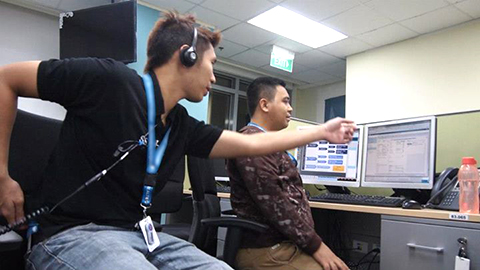In consideration of information technology-business process outsourcing (IT-BPOs) firms and registered business enterprises (RBEs) which cannot immediately transition by April 1 in accordance to the “return to office” mandate, Philippine Economic Zone Authority (PEZA) Director General Charito Plaza has announced that the agency is accepting applications for letter of authority from PEZA-registered BPOs and RBEs seeking to implement an extended hybrid work arrangement.
PEZA has been issuing letters of authority even before the Covid-19 pandemic began. Meanwhile, the said approval to be granted this time would remain in effect until September 12, 2022, the stipulated end date of the state of calamity in the Philippines by virtue of President Rodrigo Duterte’s Proclamation No. 1218.
Previously, the Fiscal Incentives Review Board (FIRB) decided via Resolution 19-21 to allow the hybrid work scheme until March 31, 2022, with work-from-home (WFH) or work-from-anywhere (WFX) available for up to 90 percent of BPO workers. The FIRB rejected the proposal to extend the hybrid work setup until December of 2022.

“Now that pabalik na tayo sa normal, gusto ng ating gobyerno na (maging) normal na rin ang takbo ng ating ekonomiya at ito ang solusyon ni PEZA, ang 70-30,” Plaza said.
“PEZA therefore is just restoring back to the regular ratio of not more than 30 percent domestic sales allowance and WFH work ratio. PEZA is giving the institutionalization of the hybrid work scheme to include DOLE’s (Department of Labor and Employment) protection, safety, and security of tenure of workers engaged in the virtual or WFH schemes to the next administration,” the PEZA Director General added.
In relation to this, Plaza has addressed concerns on how some BPOs are reportedly moving away from ecozones to keep WFH for BPO workers, a phenomenon which was earlier observed by the Department of Finance (DOF).
“There is no truth that our registered IT-BPOs and RBEs have left our ecozones. Despite having the same fiscal incentives with the BOI, it is not easy to cancel an operation. We also have a protocol that prohibits an enterprise for a double registration,” she said.
PEZA has 1,274 IT locator companies operating in 297 IT centers/parks as of December 2021. Overall, they reportedly provided 1,017,559 jobs nationwide with exports amounting to USD 15.797PHP 927INR 1,339EUR 15CNY 115 billion.

As for PEZA Deputy Director General for Policy and Planning Tereso Panga, he assured they are working closely with the Board of Investments (BOI) to institutionalize the WFH setup in the Strategic Investment Priority Plan (SIPP). Furthermore, he said that up to 30 percent WFH should be permissible not only under PEZA regulations, but also under the Corporate Recovery and Tax Incentives for Enterprises (CREATE) Act, and the Telecommuting Act.
“As long as our ecozone locators doing hybrid work are complying with the minimum 70 percent export sales and minimum 70 percent on-site report by their workers, they are (and should be) entitled to enjoy our tax incentives,” according to Panga.
PEZA’s hopes appear to be pinned on the next administration in terms of institutionalizing the hybrid work scheme, including protections and security of tenure for employees who would continue to be engaged in WFH operations. The agency is reportedly coordinating with the IT & Business Process Association of the Philippines (IBPAP) to campaign for FIRB’s consideration of a hybrid work scheme, with three schedules proposed to adopt the ratio of a 60 percent WFH: 40 percent on-site; 40 percent WFH: 60 percent on-site; or 50 percent WFH: 50 percent on-site; in staggered implementations.

YugaTech.com is the largest and longest-running technology site in the Philippines. Originally established in October 2002, the site was transformed into a full-fledged technology platform in 2005.
How to transfer, withdraw money from PayPal to GCash
Prices of Starlink satellite in the Philippines
Install Google GBox to Huawei smartphones
Pag-IBIG MP2 online application
How to check PhilHealth contributions online
How to find your SIM card serial number
Globe, PLDT, Converge, Sky: Unli fiber internet plans compared
10 biggest games in the Google Play Store
LTO periodic medical exam for 10-year licenses
Netflix codes to unlock hidden TV shows, movies
Apple, Asus, Cherry Mobile, Huawei, LG, Nokia, Oppo, Samsung, Sony, Vivo, Xiaomi, Lenovo, Infinix Mobile, Pocophone, Honor, iPhone, OnePlus, Tecno, Realme, HTC, Gionee, Kata, IQ00, Redmi, Razer, CloudFone, Motorola, Panasonic, TCL, Wiko
Best Android smartphones between PHP 20,000 - 25,000
Smartphones under PHP 10,000 in the Philippines
Smartphones under PHP 12K Philippines
Best smartphones for kids under PHP 7,000
Smartphones under PHP 15,000 in the Philippines
Best Android smartphones between PHP 15,000 - 20,000
Smartphones under PHP 20,000 in the Philippines
Most affordable 5G phones in the Philippines under PHP 20K
5G smartphones in the Philippines under PHP 16K
Smartphone pricelist Philippines 2024
Smartphone pricelist Philippines 2023
Smartphone pricelist Philippines 2022
Smartphone pricelist Philippines 2021
Smartphone pricelist Philippines 2020
Paul says:
Apparently the BIR can still remove the tax perk from those who are WFH, only those reporting to BPO on site can have it. So in practice WFH staff will have less take-home pay due to increased taxes.
Anonymous says:
How? Individual employees are taxed based on wage brackets and progressive rates. Tax perks for PEZA located IT-BPOs are enjoyed by employers, not employees.
Paul says:
This is a point of contention with PEZA/DTI and the BIR, quote from https://mb.com.ph/2022/04/10/peza-bir-to-resolve-wfh-tax-incentives-issue/
Combine this with PEZA’s interpretation of the law that the 70% sales ratio rule could also be read as 70% on-site employees, quote from https://mb.com.ph/2022/03/27/peza-to-allow-70-30-hybrid-work-model/
If BIR applies the incentives to only the 70% done on-site, then for the remaining 30% of employees whatever income they earned while WFH may not be accounted for under the tax perk.
Although yes I do agree, I hope that they still apply the tax perk wholesale at the employer level, not the employees.